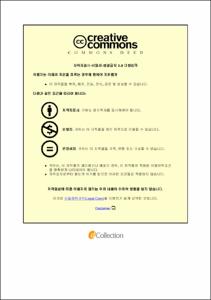한국 대학생의 영어 어휘학습신념, 전략, 그리고 어휘지식 사이의 관계
- Alternative Title
- The relationship between Korean college students’ beliefs about English vocabulary learning, English vocabulary strategies, and vocabulary knowledge
- Abstract
- This study analyzed the relationship between (a) Korean university students’ beliefs about English vocabulary learning, (b) their use of English vocabulary strategies, and (c) vocabulary knowledge. It further investigated whether such predictive effects would differ at the gender and the levels of the students’ vocabulary knowledge. To this end, 206 university students were asked to take three types of instruments: (a) a questionnaire designed to elicit their beliefs of vocabulary learning, (b) a questionnaire designed to measure their vocabulary learning strategy use and effectiveness, and (c) a vocabulary level test. The participants were divided into three groups based on their vocabulary test results.
The data collected through two questionnaires and a vocabulary level test were analyzed by using SPSS 22. Among the five belief categories, participating students held the strongest belief about the importance of vocabulary learning. Among the six categories, the guessing strategies were most frequently used while the cognitive strategies were least used. There was no statistical difference between genders in beliefs and use of vocabulary learning strategies. However, there was a statistical difference mostly between the higher and the lower groups in three belief (the importance of vocabulary, free volunteer reading, and motivation) and four strategy (the meta-cognitive, relationship, cognitive, and guessing strategies) groups.
In addition, Structural Equation Modeling (SEM) using AMOS 18 was employed to examine the relationship between beliefs, strategies, and vocabulary knowledge. First, the fit of the research model used in this study was confirmed as acceptable. Second, students’ belief s about English vocabulary learning directly affected students’ vocabulary knowledge and a indirect influence on their vocabulary knowledge via vocabulary learning strategies as well. However, vocabulary-learning strategies directly did not affect students’ vocabulary knowledge.
The multiple regression analyses identified three significant factors affecting learners’ vocabulary knowledge. The importance of vocabulary, free volunteer reading, and guessing strategies were found to have positive effects on vocabulary knowledge. With three factors, a structural model was modified. The importance of vocabulary and guessing strategies showed significant effect on vocabulary knowledge. Moreover, the importance of vocabulary had an indirect impact on vocabulary knowledge via guessing strategies. However, free volunteer reading did not have a statistical effect on vocabulary knowledge.
The results indicated that the correlation between briefs and vocabulary knowledge is more significant than the correlation between strategies and vocabulary knowledge. The learners’ beliefs about vocabulary learning play a critical role in promoting English vocabulary knowledge. The findings can be a valuable resource to consider appropriate ways of using student’s perceptions to improve English vocabulary teaching and learning practice.
- Issued Date
- 2020
- Awarded Date
- 2020. 2
- Type
- Dissertation
- Publisher
- 부경대학교
- Alternative Author(s)
- Lee, Simju
- Affiliation
- 부경대학교 대학원
- Department
- 대학원 영어영문학과
- Advisor
- 오준일
- Table Of Contents
- Ⅰ. 서론 1
1.1 연구의 필요성 1
1.2 연구 목적 및 연구 과제 5
1.3 논문의 구성 6
Ⅱ. 이론적 배경 8
2.1 어휘지식 8
2.1.1 어휘지식의 중요성 8
2.1.2 수용적 지식과 산출적 지식 9
2.1.3 서술적 지식과 절차적 지식 12
2.1.4 어휘지식의 크기와 깊이 14
2.2 어휘학습 방법 18
2.2.1 명시적 학습과 묵시적 학습 18
2.2.2 자발적 읽기 21
2.3 신념 24
2.4 어휘학습전략 26
2.4.1 O’Malley와 Chamot(1985)의 학습전략 유형 26
2.4.2 Oxford(1990)의 학습전략 유형 28
2.4.3 Schmitt(1997)의 어휘학습전략 유형 30
2.5 선행 연구 33
2.5.1 신념에 대한 선행 연구 33
2.5.2 어휘학습전략에 관한 선행 연구 35
2.5.3 신념과 학습전략에 관한 선행 연구 38
2.5.4 신념과 학습전략, 그리고 영어지식에 관한 선행 연구 39
III. 예비 연구 42
3.1 연구 과제 42
3.2 연구 대상 43
3.3 연구 도구 43
3.3.1 어휘학습신념 설문지 43
3.3.2 어휘학습전략 설문지 44
3.3.3 어휘 수준 시험 45
3.4 자료 수집 및 분석 방법 46
3.5 결과 및 논의 47
3.5.1 어휘학습신념 47
3.5.2 어휘학습전략 50
3.5.3 신념 및 전략이 어휘지식에 미치는 영향 56
3.6 예비 연구의 결론 및 보완점 59
Ⅳ. 연구 방법 63
4.1 연구 대상 63
4.2 연구 도구 65
4.2.1 어휘학습신념 설문지 65
4.2.2 어휘학습전략 설문지 66
4.2.3 영어 어휘 수준 시험 68
4.3 자료 수집 및 분석 방법 68
Ⅴ. 결과 분석 및 논의 71
5.1 설문지의 타당도 및 신뢰도 71
5.1.1 어휘학습신념 설문 요인분석 71
5.1.2 어휘학습전략 설문 요인분석 74
5.2 어휘학습에 대한 신념 78
5.2.1 어휘학습에 대한 신념 78
5.2.2 성별과 어휘 수준에 따른 어휘학습에 대한 신념 79
5.3 어휘학습전략 82
5.3.1 어휘학습전략의 실제 사용정도 82
5.3.2 성별과 수준에 따른 어휘학습전략의 실제 사용 정도 83
5.3.3 어휘학습전략의 유용도 인식 86
5.3.4 성별과 수준에 따른 어휘학습전략의 유용도 인식 88
5.3.5 어휘학습전략의 실제 사용과 유용도 인식 간의 문항별 비교 90
5.4 어휘학습신념, 어휘학습전략, 그리고 어휘지식 간의 구조적 관계 96
5.4.1 연구모형의 설정 96
5.4.2 측정 변인의 기술 통계 97
5.4.3 측정모형 분석 99
5.5 신념 및 전략의 각 요인이 어휘지식에 미치는 영향 102
5.5.1 어휘학습신념이 어휘지식에 미치는 영향 102
5.5.2 어휘학습전략이 어휘지식에 미치는 영향 103
5.5.3 어휘 중요성, 자발적 읽기, 추측전략, 어휘지식 간 구조적 관계 105
Ⅵ. 결론 및 제언 109
6.1 연구의 결론 109
6.2 연구의 제한점 113
6.3 교육적 함의 및 앞으로의 연구 방향 113
참고문헌 116
부록 128
- Degree
- Doctor
- Files in This Item:
-
-
Download
 한국 대학생의 영어 어휘학습신념, 전략, 그리고 어휘지식 사이의 관계.pdf
기타 데이터 / 893.23 kB / Adobe PDF
한국 대학생의 영어 어휘학습신념, 전략, 그리고 어휘지식 사이의 관계.pdf
기타 데이터 / 893.23 kB / Adobe PDF
-
Items in Repository are protected by copyright, with all rights reserved, unless otherwise indicated.